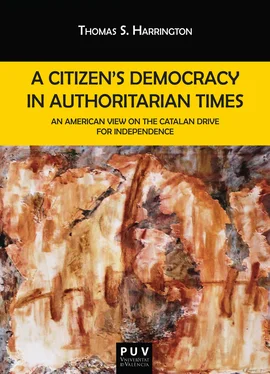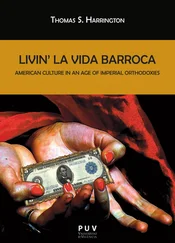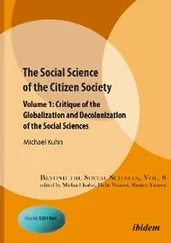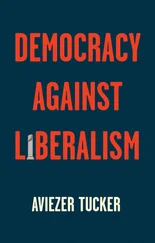—. Diputado por la cultura” (1910) Obras Completas X. Madrid: Revista de Occidente, 1947-83 145-146.
Pascoaes, Teixeira de. Arte de Ser Portugues. Obras de Texeira de Pascoaes/10 Lisboa: Assirio e Alvim, 1991.
—.”O Génio Português na sua expressão Filosofica Poetica e Religiosa” in A Saudade e o Saudosismo. Obras de Texeira de Pascoaes/7 Compilação e fixação do texto e notas de Pinharanda Gomes Lisboa: Assirio e Alvim, 1988. 67-95.
Pi i Margall, Francisco. Las Nacionalidades. Introducción por Jordi Solé-Tura. Madrid: Centro de Estudios Constitucionales, 1986.
Pondal, Eduardo. Poesias. A Coruña: Xuntanza editorial, 1990.
Prat de la Riba. Enric. La nacionalitat catalana i Compendi de la doctrina catalanista. Edició a cura de Jordi Casassas i Ymbert en Biblioteca dels Clàssics del Nacionalisme Català, 30 Barcelona: La magrana, 1993.
“Presentación oficial de la nueva edición de la Ortografía de la Lengua Española” Fundacion San Millán de la Cogolla < http://www.fsanmillan.org/marco4.htm>
Ramoneda, Josep. “Final de etapa” El País Digital 2 octubre, 1998 < http://elpais.es>
Renan, Ernest. “What is a Nation” translated by Alfred E. Zimmern in Zimmern, Alfred E. editor, Modern Political Doctrines. New York: Oxford University Press, 1939: 186-205.
Resina, Joan Ramón. “Hispanism and its Discontents” Siglo XX/Twentieth Century (1996) 85-129.
Risco, Vicente. Teoría nacionalista: acercamento biográfico e bibliografía por Fernando Salgado, edición e liminar de Teoria Nacionalista de Francisco Bobillo. Vol. 1 de las Obras Completas. Madrid: Akal Editor, 1981.
Torras i Bages, Josep. La Tradició Catalana. Barcelona: Editorial Selecta 1966.
Tusell, Javier. “El fin del antiguo régimen: Fernando VII” in Tusell, Javier, Carlos Martínez Shaw and José-Luis Martín eds. Historia de España: Edad Contemporánea. (Madrid: Taurus, 2001) 17-45.
Unamuno, Miguel de.”Solidaridad Española” Obras Completas VII Madrid: Afrodisio Aguado, 1958. 729-755.
Vidal-Quadras, Aleix. Cuestión de fondo. Barcelona: Montesinos, 1993.
[2]Originally published in Mabel Moraña ed. Ideologies of Hispanism (Nashville: Vanderbilt University Press, 2004) 107-137.
[3]In this context, ponencias are reports commissioned by the leadership of the party for the purpose of framing discussion at its annual convention. Thay might be compared to the so-called “planks” within political platform of a party in the U.S. The annual convention of the PP took place in Madrid from the 26th to the 28th of January 2002.
[4]The critical discourse attendant to nationality issues in Spain has, in its Spanish-language iteration, long included the use of terms such as catalanismo, galleguismo bizcaitarrismo and even vasquismo (although “el nacionalismo vasco” is now much more common than these last two terms employed by Ortega and Unamuno respectively). However, the term castellanismo has never really achieved the status of a common linguistic currency. I believe this omission is quite telling. In an attempt to spur a leveling of the semantic playing field, I will use the term Castilianism throughout the remainder of the paper.
[5]Until the mid-eighties, there was still a relatively high level of critical unconsciousness among most scholars whose work centered on nationalist discourses. One either tended to accept and thus “work within” the prima facie claims of essentialists concerning the spontaneity and “timelessness” of nationalist belief systems or to simply dismiss such discourses as pesky and illogical vestiges of a soon-to-be-extinguished system of social meaning. It was a situation that, in many ways, mirrored the tendency in literary studies to either accept the canonicity (another metaphor for “timelessness”) of certain works on the basis of previous critical pronouncements or to reject the whole system of relative literary value as nothing more than a feeble and fundamentally self-interested bourgeois imposition. Thanks to Bourdieu and others like him who have concentrated on the broader dynamics of the economy of symbolic goods, and the far from disinterested role that intellectuals and intellectual institutions play within it, many literary scholars have distanced themselves from such facile posturing and have begun to examine the full range of processes through which “taste” is generated. Benedict Anderson is, of course, the most frequently cited exponent of such “critical reflexivity” in the realm of nationality studies. However, scholars from the Tel-Aviv and Leuven Schools schools, trained in literary and translation studies, have taken the Cornell historian’s fecund intuitions to a much higher level of specificity and rigor. The reason would appear to be clear. While historians and political scientists often possess ample tools for macro-theorizing, they often lack the level of linguistic competence, global cultural experience and attention to textual nuance that is common among scholars of literature. When we consider the importance of intersystemic “cultural commerce” and the need to push intra-cultural “hot buttons” on the successful creation and maintenance of such schemes of identity, we can see that these abilities are of absolutely crucial interpretive importance.
[6]Applying these postulates present circumstances in the U.S. (albeit in admittedly crude and reductionist fashion) it might be argued, for example, that the outpouring of patriotic fervor following the events of September 11th, far from being a spontaneously occurrence or a the result of a profound appreciation for the qualities of President Bush or Secretary Rumsfeld, was the logical result of a culture planning entente forged in the 1980s and 1990s between the small and increasingly interrelated concentrated group of major audiovisual producers and an ever more unilateralist and militarized political establishment. Aware that the so-called Vietnam Syndrome was a direct result of the fact that many Americans “too intimate” with the gruesome carnage of war and the moral grayness of neo-colonialist adventurism, the national security establishment (greatly strengthened by new funding for conservative Washington think-tanks) desperately hoped for a new repertoire of morally unambiguous story lines that minimized or caricaturized armed conflict’s human toll and portrayed political deliberation as an unnecessary drag on “decisive” and “heroic” action. Hollywood, increasing aware that introspection and moral angst of The Deer Hunter vintage simply did not sell as well as manichaeanism, readily obliged in providing such “uplifting” and cartoonishly simplistic images and plots. The massive implantation of this newly established repertoire of tropes and symbols (with its systematic degradation of the non-US “others”) has been fundamental to generating the apparently overwhelming “proneness” for the type of foreign policy the US is pursuing post September 11. In short, if we were really serious about explaining our current way of acting the world we would be far less interested in the insider gossip concerning the ascendancy within the Bush Adminstration of Condoleeza Rice or Colin Powell and far more interested in how people like Jerry Bruckheimer, Menachem Golans, Rush Limbaugh, Roger Ailes, Arnold Schwartzenegger and Chuck Norris substantially re-engineered many Americans’ perception of the core terms of engagement between “us” and the world outside our borders.
[7]See Castellanos, 25-35.
[8]See Even Zohar “Repertoire,” 389-392.
[9]Despite fervent Catalan cries for justice, the central government not only exonerated the rioters, but passed a statute, La Ley de Jurisdicciones (23 March 1906) that insured that army officials would be exempt from prosecution should they engage in similar activities in the future.
Читать дальше












